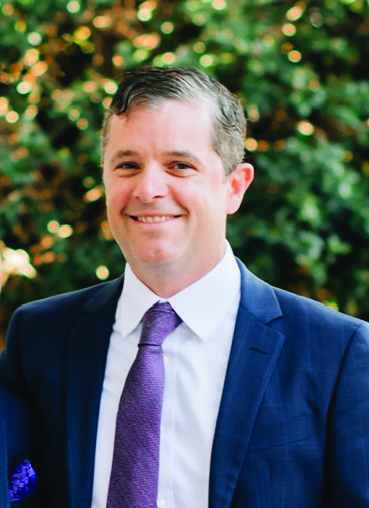
Since many people spend money that they don’t have, Mercadante stresses, “No matter what you’re earning, live within it.” She counsels college grads and retirees with the same advice: “It’s going to take a little while to figure out how much you’re spending.”
Mercadante recommends starting with two buckets: short-term savings for emergencies and a long-term retirement plan (she refers to an in-between bucket, which includes investments that are not for retirement). Except for student loans, a mortgage, or a car payment, she is adamant about no debt, including credit cards. “It is easy to get into debt and hard to get out,” she says, suggesting that credit card bills be set up to be paid in full each month. With that mantra in mind, she adds, “You will not spend more than you have.”

Byron Harrell, senior vice president at Davenport & Company, offers quantitative advice with the 50/30/20 approach. Half of one’s after-tax income should be allocated to rent, utilities, groceries, and minimum loan payments. Splurges, such as entertainment, should account for 30%, and the remaining 20% should go towards savings and high-interest debt repayment.
“Save your toys for later in life,” he advises. “Build up an emergency account in case you need access to money. The sooner you can save, the better.” To get the ball rolling, Harrell suggests placing 80% of savings into a short-term account and 20% towards retirement.
Most companies offer retirement plans, and Mercadante strongly recommends contributing as soon as you are eligible. “There is tremendous power in starting early,” she says, offering this example: If an employee begins saving at 25 years old and continues for 10 years, by age 65 they will have more money than if they had waited until age 35 and invested for the next 30 years. Time in the market matters!
Harrell adds, “Never interrupt compounding. Save for the long haul and don’t get spooked by the (stock) market.”
Audrey Peck, a 2024 college graduate, chose an elective course at UNC-Chapel Hill with this future planning in mind. “Taking a personal finance class my senior year of college was more beneficial than I could’ve imagined. The class allowed me to understand how expensive life is and gave me the tools to start preparing for that now, such as opening a Roth IRA.”
During speaking engagements, Mercadante shares a JP Morgan slide as part of her presentation. Her audience learns about three different levels of control impacting their financial lives. For starters, an individual has zero control over tax policy or market return (other than voting for an elected official, who might espouse one leaning or another towards tax policy). Some control is within reach regarding earnings and longevity. But people have total control over savings and spending. This is an important concept for new college graduates.
Harrell recommends separating real money from a small percent of play money. “The majority of investment savings should go into stable opportunities that can grow over the long haul.”
Success is most often achieved not by luck, but by diligence. For young adults to become successful retirees, planning, saving, and investing can begin with their first paychecks. A little information and guidance might be all that’s needed to get them started.

